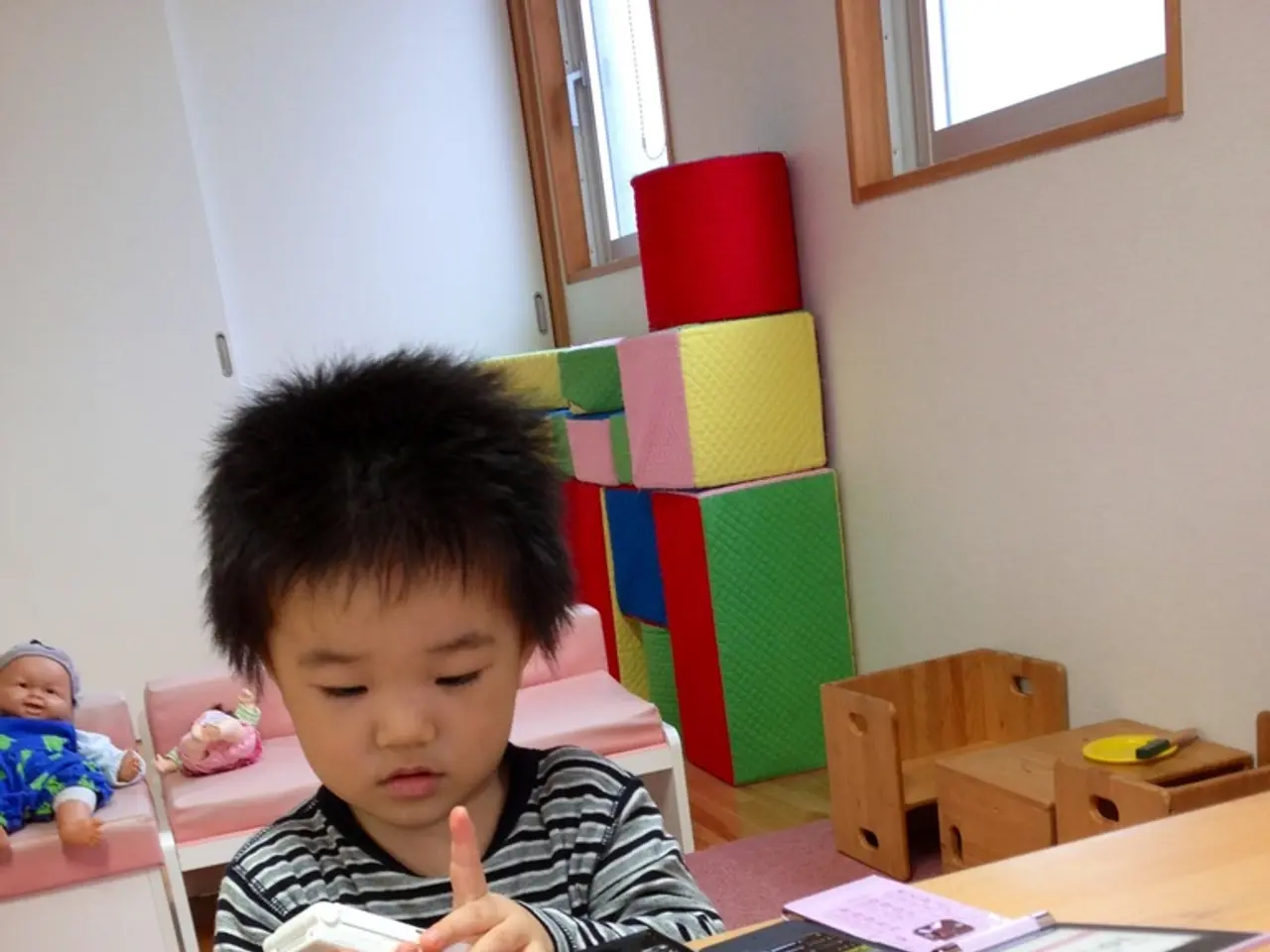Potential Harm to Lifelong Mental Health: The Impacts of Providing Smartphones to Children Under Age 13
Early Smartphone Ownership and Mental Health Risks in Young Adults
The use of smartphones and social media platforms in early childhood has been linked to significant long-term negative effects on the mental health of young adults. A study conducted by Sapien Labs, involving over 100,000 young adults aged 18 to 24 across 40 countries, has identified several key risks associated with early smartphone ownership.
Key Mental Health Risks
The study found that nearly half (48%) of females who had smartphones by age 5 or 6 reported severe suicidal thoughts by young adulthood, compared to 28% of those who got phones at 13 or older. Early smartphone users, especially girls, also experience lower self-image, emotional resilience, confidence, and more aggression and detachment from reality.
Additional Contributing Factors
Early social media access, cyberbullying, disrupted sleep patterns, and poor family relationships are major mediators worsening these outcomes. Poor family relationships explain another 13% of the mental health impact, while cyberbullying accounts for 10%.
Mitigation Strategies
Experts recommend delaying smartphone access until after age 13, similar to regulations on alcohol or other age-restricted items, to protect mental health. Limiting and supervising social media use and screen time can reduce exposure to harmful effects like cyberbullying and sleep disruption. Strengthening family support may buffer some of the negative mental health impacts linked to early smartphone use. Informing parents, educators, and policymakers about these risks can encourage safer technology use practices for children.
A Developmentally Appropriate Approach
The researchers advocate for a "developmentally appropriate, society-wide policy response" that includes mandatory digital literacy and mental health education, strict enforcement of age restrictions on social media platforms, graduated access to smartphones, and public policy modeled after tobacco and alcohol regulations.
Case Studies
In the U.K., the suicide of 14-year-old Molly Russell became a turning point, with investigators finding that she had viewed more than 2,000 pieces of content related to self-harm, suicide, and depression on Instagram and Pinterest. In New Jersey, 12-year-old Mallory Grossman took her own life after months of cyberbullying through Snapchat and Instagram.
The study's findings appeared in the Journal of Human Development and Capabilities. The researchers caution against placing the burden solely on parents, as children are still vulnerable to indirect effects like peer aggression or classroom disruptions, arising from broader smartphone use.
The Mind Health Quotient (MHQ)
Scores on the MHQ range from -100 to +200, with scores above 100 indicating positive mental wellbeing and thriving, scores below 0 indicating significant mental distress, and scores between 0 and 100 reflecting varying degrees of struggling or coping. The younger the child is when they received their first phone, the more severe the symptoms in adulthood.
In English-speaking countries like the U.S., U.K., Canada, and Australia, these downstream effects were particularly pronounced, with social media access explaining up to 70% of the link between early smartphone ownership and poor mind health outcomes. Children who gain early access to social media encounter digital environments powered by AI algorithms designed to maximize engagement, which can expose them to disturbing content, social comparison, and addictive behaviors.
Dr. Tara Thiagarajan, neuroscientist and Chief Scientist at Sapien Labs, stated that early smartphone ownership is linked with a profound shift in mind health and wellbeing in early adulthood. The study found that approximately 40% of the negative outcomes linked to early smartphone ownership can be explained by early entry into social media platforms.
- The use of smartphones and social media platforms in early childhood has been associated with significant long-term negative effects on the mental health of young adults.
- Early smartphone owners, especially girls, experience lower self-image, emotional resilience, confidence, and more aggression and detachment from reality.
- Early social media access, cyberbullying, disrupted sleep patterns, and poor family relationships are major factors worsening these outcomes.
- Experts recommend delaying smartphone access until after age 13 and limiting and supervising social media use to protect mental health.
- Strengthening family support may help buffer some of the negative mental health impacts linked to early smartphone use.
- A developmentally appropriate policy response, including digital literacy and mental health education, strict age restrictions on social media platforms, and public policy modeled after tobacco and alcohol regulations, is advocated for.




